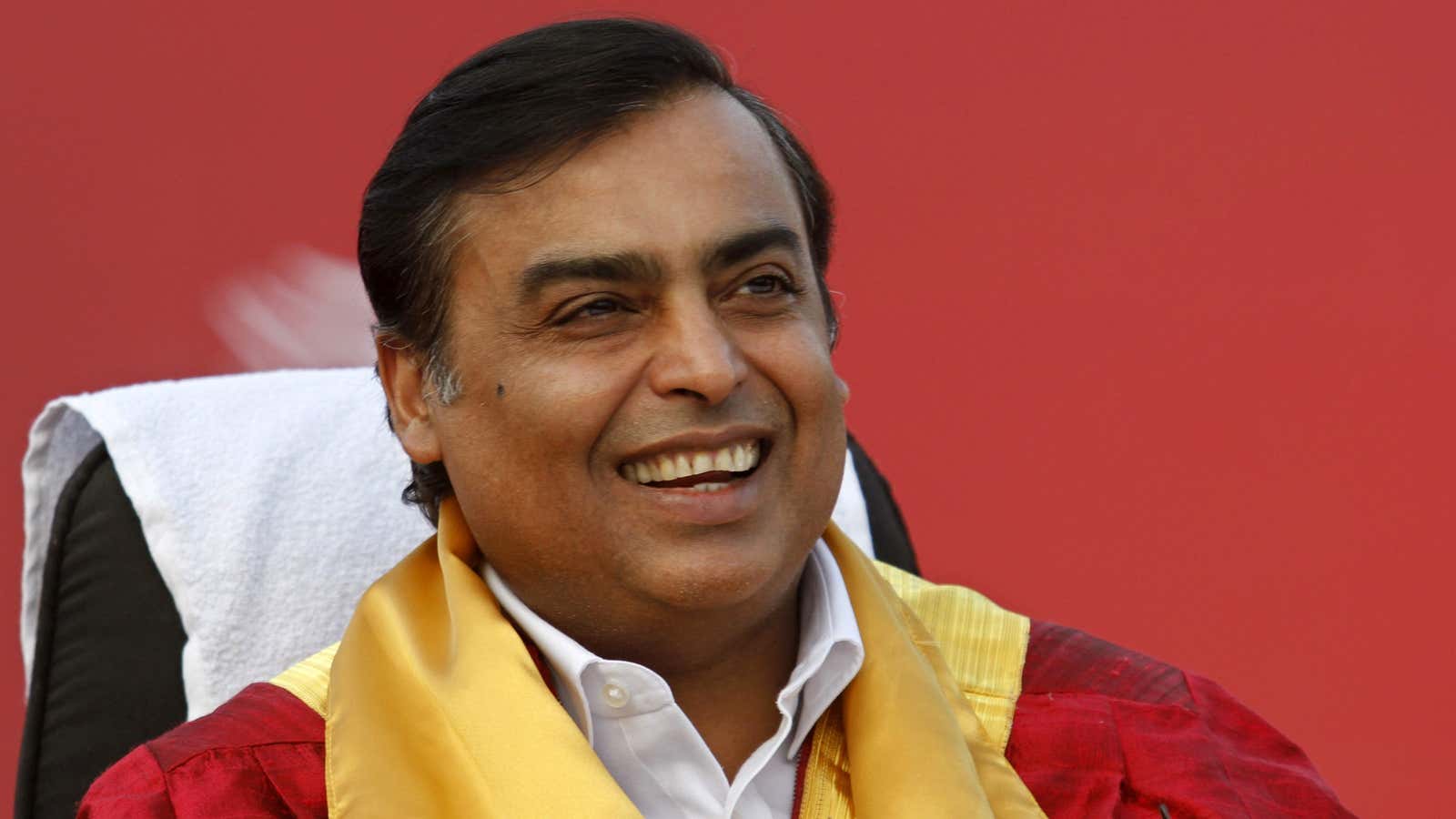Finding opportunity amid the coronavirus outbreak has been easier said than done for most—but for Indian juggernaut Reliance Industries (RIL), it really has been the case.
“I firmly believe that a crisis is too precious to be wasted,” RIL chairman Mukesh Ambani said in a conversation with Facebook CEO Mark Zuckerberg at the social media behemoth’s Fuel for India event on Dec. 15. “Every crisis presents an opportunity for new growth, and India has faced the Covid crisis with enormous resilience and resolve,” Ambani added.
The oil-to-telecom conglomerate is proof of Ambani’s belief. Afterall, RIL managed to clear its $21 billion (Rs1.5 lakh crore) debt in just 58 days right in the middle of the pandemic.
The company’s digital subsidiary, Jio Platforms, played a big part in this. And Facebook was the one to set the ball rolling for Jio’s funding spree even as India was under a lockdown that brought its economy to its knees.
The Jio effect in 2020
“During the pandemic, India has attracted the largest foreign direct investment in its history,” Ambani said. Jio was the biggest reason for this investment, numbers show.
In April, Facebook funnelled $5.7 billion into Jio Platforms in exchange for a 9.99% stake.
Following that, several big names including search giant Google, American private equity firm Silver Lake, and Abu Dhabi’s sovereign wealth fund Mubadala added to the kitty.
Jio Platform dabbles in a wide array of new tech in the country, spanning across cloud, media, digital commerce, financial services, gaming, education, healthcare, agriculture, e-governance, and smart cities. It witnessed breakout performance in the April-June quarter, even as Indians were cooped up at home for most of that duration. It added 10 million new users and posted a 183% yearly growth in net profit at Rs2,520 crore.
While Jio Platforms amassed over Rs1.52 lakh crore in funding this year, the same slate of investors also pumped in money into Reliance Retail, which has so far raised over Rs47,000 crore. Reliance Retail grew its footprint and had over 11,931 physical stores operational by the end of September.
The flip-side of such success is the risk of RIL becoming a monopoly.
In addition, wealth inequality is astounding. As India stares at a massive recession and millions struggle to put food on the table, billionaire wealth continues to balloon. Ambani, for instance, was been adding Rs90 crore an hour to his personal wealth since the March lockdown began, a September report said.
However, RIL has tried to do its bit to contribute to fighting the coronavirus crisis.
Reliance’s fight against Covid
For one, RIL set up India’s first hospital dedicated to Covid-19 in Mumbai back in March.
Then, India’s most valuable company got into the business of making personal protective equipment (PPE). In May, it converted textiles and apparel fabrics maker Alok Industries, which it acquired in end-February, into a PPE manufacturing unit producing protective gears at a fraction of the cost (Rs650) compared to those imported from China (Rs2,000).
From a crippling domestic shortage, RIL turned things around 180 degrees.
By June, it was producing more than 100,000 PPE kits daily—a fifth of India’s daily PPE production capacity. “In a matter of months, we at Reliance, produced a hundred thousand PPE’s, and we are now exporters from India,” Ambani said during his chat with Zuckerberg.
